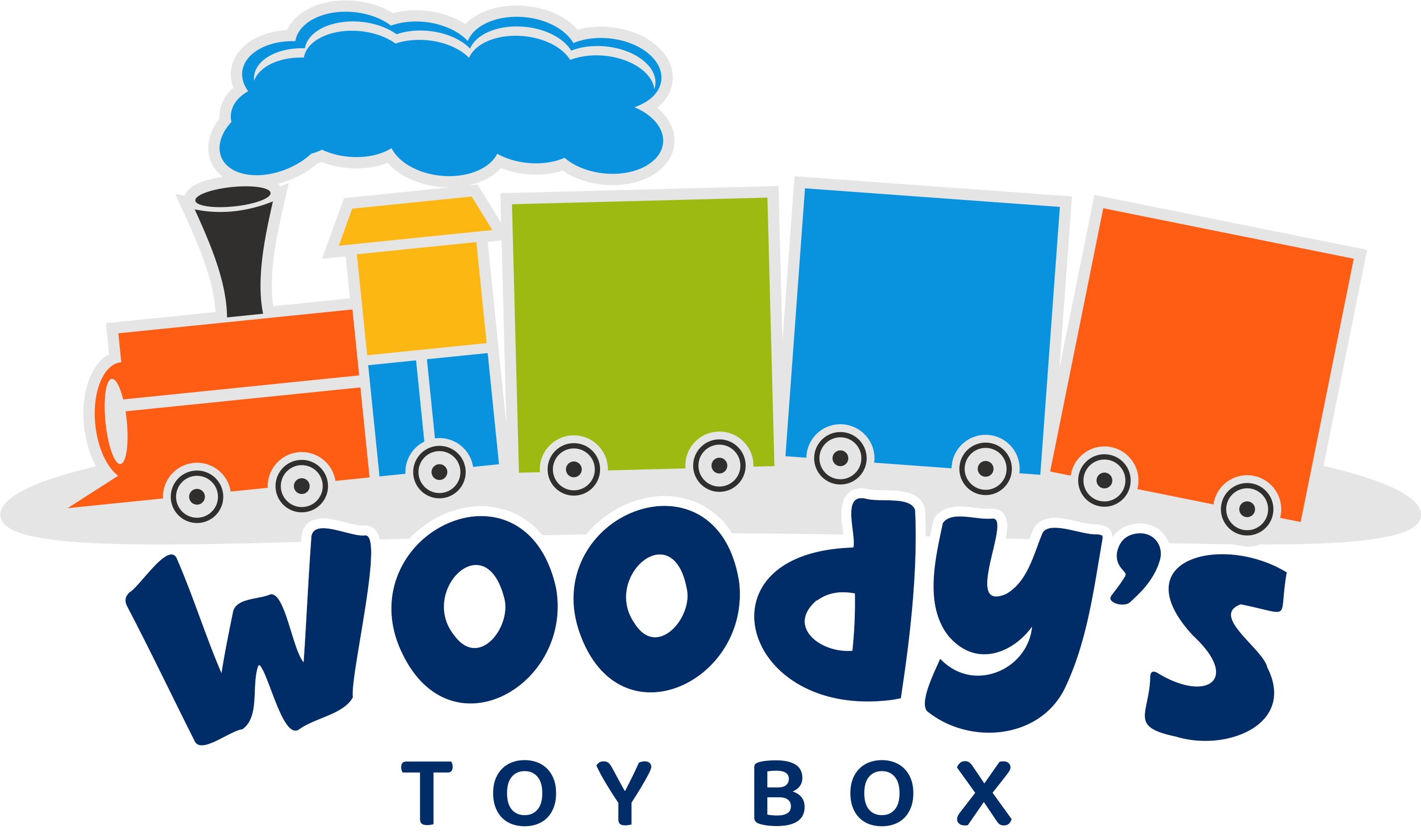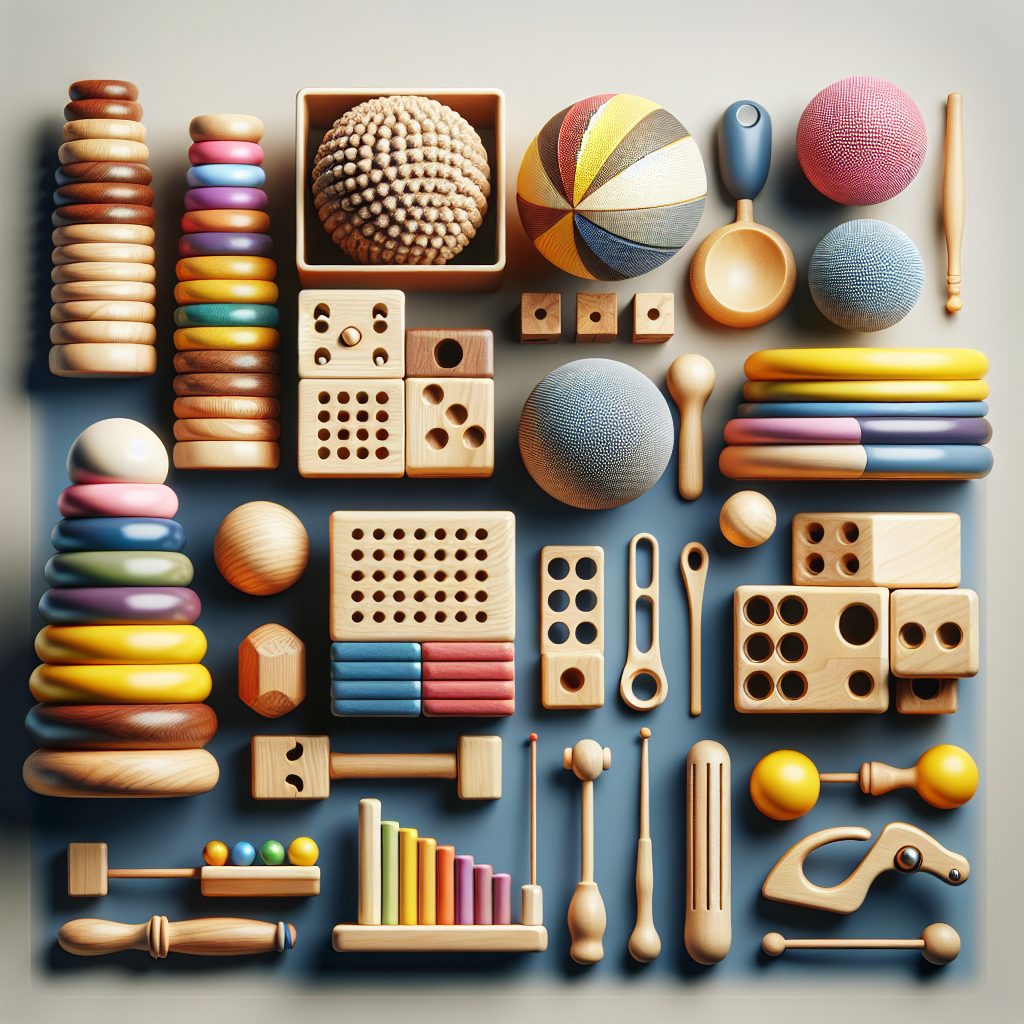Montessori education emphasizes hands-on learning for children, allowing them to actively engage with their environment and develop essential skills through sensory experiences. In line with this educational approach, Montessori sensory toys play a vital role in promoting child development. These toys are designed to stimulate the senses, encourage exploration, and enhance various aspects of a child’s growth, including cognitive, physical, and emotional development. By providing children with a range of sensory experiences, these toys can help foster creativity, problem-solving abilities, and social skills.
One unique feature of Montessori sensory toys is their focus on providing open-ended play opportunities. Unlike traditional toys with limited functions or specific outcomes, these toys encourage children to explore and use their imagination. They do not dictate how a child should interact with them, allowing for endless possibilities and self-directed learning. By engaging in open-ended play, children can develop their decision-making skills, build confidence, and learn to independently navigate their world.
In the upcoming sections, we will delve into the key takeaways about the best Montessori sensory toys for child development. We will explore the different types of sensory toys available, their specific impacts on various areas of development, and how to choose the right toys for your child’s age and interests. So, let’s dive into the world of Montessori sensory toys and discover their incredible benefits for your little one’s growth and exploration!
Key Takeaways
1. Montessori sensory toys are a powerful tool for child development, as they engage multiple senses and promote active learning. These toys encourage children to explore, experiment, and develop their motor skills and cognitive abilities.
2. Choosing the right sensory toys is crucial, as they should be age-appropriate and tailored to the developmental needs of your child. Look for toys that allow for open-ended play, encourage problem-solving, and stimulate creativity.
3. Sensory toys that focus on tactile experiences, such as textured balls or playdough, are especially beneficial in developing the child’s sense of touch, fine motor skills, and hand-eye coordination.
4. Sound-based sensory toys, such as musical instruments or sound puzzles, promote auditory recognition, rhythm comprehension, and language development. They also help children develop their listening skills and enhance their ability to identify different sounds.
5. Sensory toys that engage visual senses, like puzzles, stacking toys, or color matching games, are essential in developing visual perception, spatial awareness, and cognitive skills. These toys improve the child’s ability to recognize patterns, solve problems, and understand cause and effect relationships.
What are the best Montessori sensory toys for child development?
1. Importance of Sensory Toys in Child Development
Sensory toys play a crucial role in a child’s development as they stimulate the senses and promote cognitive, physical, and emotional growth. These toys engage children in sensory exploration, helping them develop their fine motor skills, sensory perception, and problem-solving abilities. Montessori sensory toys are specifically designed to facilitate hands-on learning experiences that enhance a child’s overall development.
2. Characteristics of Montessori Sensory Toys
Montessori sensory toys have distinctive characteristics that differentiate them from traditional toys. They are typically made from natural materials like wood, fabric, and metal, providing a tactile and sensory-rich experience. These toys focus on promoting independence, self-directed play, and fostering a child’s curiosity and exploration. Montessori sensory toys are often simple in design, enabling children to engage in open-ended, imaginative play.
3. Benefits of Using Montessori Sensory Toys
Using Montessori sensory toys offers numerous benefits for a child’s development. These toys enhance fine motor skills as children manipulate and handle objects of different sizes, shapes, and textures. They also promote sensory development, helping children refine their senses of touch, sight, sound, taste, and smell. Montessori sensory toys encourage creativity and imagination, as children can use them for open-ended play and exploration. Additionally, these toys foster concentration, problem-solving skills, and cognitive development.
4. Top Montessori Sensory Toys for Child Development
– Sensory Balls: These textured balls help improve tactile sensitivity and hand-eye coordination.
– Shape Sorters: Shape sorters enhance problem-solving skills and fine motor control as children match shapes and colors.
– Nesting Blocks: Nesting blocks promote hand-eye coordination, spatial awareness, and sorting abilities.
– Sensory Bins: Sensory bins filled with materials like rice, sand, or water offer opportunities for sensory exploration and imaginative play.
– Musical Instruments: Musical instruments aid in sensory development and promote rhythm, coordination, and auditory perception.
– Puzzles: Montessori puzzles develop cognitive skills, hand-eye coordination, and problem-solving abilities.
– Dress-Up Sets: Dress-up sets encourage imaginative play, self-expression, and social skills.
5. Tips for Choosing Montessori Sensory Toys
1. Consider the child’s age and developmental stage when selecting sensory toys.
2. Choose toys made from natural materials to offer a more authentic sensory experience.
3. Select toys that encourage open-ended play and allow for creativity and exploration.
4. Opt for toys that promote multiple senses to maximize sensory stimulation.
5. Pay attention to safety features such as non-toxic materials and age-appropriate components.
FAQ
1. What are Montessori sensory toys?
Montessori sensory toys are specifically designed to engage a child’s senses and promote their overall development. These toys are carefully crafted to encourage hands-on exploration and stimulate a child’s senses of sight, touch, hearing, and sometimes even taste or smell.
2. Why are Montessori sensory toys beneficial for child development?
Montessori sensory toys offer numerous benefits for child development. They promote sensory exploration, helping children to refine their senses and develop coordination and motor skills. These toys also encourage independent play, fostering creativity, problem-solving, and cognitive development in young minds.
3. At what age can a child start using Montessori sensory toys?
Montessori sensory toys are suitable for infants and children of all ages. From newborns exploring textures to older children engaging in more complex sensory activities, there are toys available for each developmental stage. It’s important to choose toys that match your child’s current abilities and offer appropriate sensory experiences.
4. What specific sensory experiences do Montessori toys provide?
Montessori sensory toys provide a wide range of sensory experiences. These may include textures to touch and feel, objects that make different sounds, materials of varied temperatures, toys with vibrant colors to stimulate sight, and scents that engage the olfactory senses. Each toy offers a unique sensory opportunity, supporting the holistic development of a child.
5. Are Montessori sensory toys safe for young children?
Yes, Montessori sensory toys are designed with safety in mind. They are made from non-toxic materials and constructed to minimize any potential choking hazards. However, it’s important to supervise young children while they are playing with these toys, especially if they have small parts or loose components.
6. How can Montessori sensory toys support language development?
Montessori sensory toys can support language development by introducing vocabulary associated with different textures, shapes, colors, and objects. They also encourage children to express themselves, promoting communication skills. Through hands-on exploration, children can develop their ability to identify and describe sensory experiences, aiding in their overall language acquisition.
7. Do Montessori sensory toys help with fine motor skills?
Absolutely! Montessori sensory toys are excellent tools for developing fine motor skills. Activities such as transferring objects, manipulating puzzles, and engaging in sensory play with small manipulatives, all contribute to the refinement of hand-eye coordination and the strengthening of fine motor muscles.
8. Can Montessori sensory toys promote social interaction?
While Montessori sensory toys primarily focus on individual exploration and independent play, they can also facilitate social interaction. When children engage in sensory activities together, they have the opportunity to observe and learn from each other. This can encourage cooperation, turn-taking, and the development of social skills as they share their experiences.
9. What are some examples of Montessori sensory toys?
Examples of Montessori sensory toys include textured balls, wooden puzzles, sensory bins filled with various materials, sorting and stacking toys, musical instruments, and playsets with diverse textures and objects. These toys provide a range of sensory experiences and opportunities for children to engage their senses in meaningful ways.
10. Where can I purchase Montessori sensory toys?
Montessori sensory toys can be found both online and in physical stores. Many specialty toy stores, educational supply stores, and online marketplaces offer a wide selection of Montessori sensory toys. It’s important to ensure that the toys you choose align with Montessori principles and offer appropriate sensory experiences for your child.
Final Thoughts
When it comes to promoting child development, Montessori sensory toys are an invaluable resource. These toys provide endless opportunities for children to explore, engage, and learn through their senses. By incorporating sensory experiences into playtime, children develop a deeper understanding of the world around them, enhance their cognitive abilities, and refine crucial motor skills.
Investing in Montessori sensory toys allows children to experience the joy of independent exploration while fostering their growth across multiple domains. By encouraging hands-on learning and providing a safe and stimulating environment, these toys empower children to become curious, inquisitive, and confident learners. So, embrace the wonders of Montessori sensory toys and nurture your child’s holistic development from an early age.

